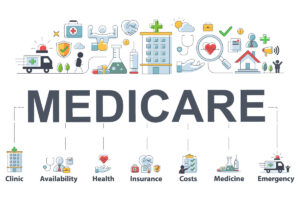Suggested Screenings For Deadly Diseases — Paid for by Medicare — Should Be Part Of Your Regular Checkups.
Early diagnosis and treatment can save lives and Medicare recommends you get checked.
Viral hepatitis is responsible for more than a million deaths annually around the world. Colorectal cancer is the second largest cause of cancer-related deaths. While awareness has improved the rate of people dying with AIDS, more than 6,000 died of the disease in 2015.
Many of these deaths could have been prevented with proper screening. Medicare recommends and covers costs of screening under Medicare Part B and recommends that members take advantage of the opportunity.
Many women get regular mammograms to screen for breast cancer. Women or men may not be as familiar with screenings available for hepatitis, colon cancer, or HIV. Medicare recommends that you talk to your doctor to decide if and when you should be screened for one or more of these diseases.
Viral Hepatitis
Hepatitis is an inflammation of the liver. The most common types of Hep B and Hep C. B is contagious. If you come in contact – either through blood or other bodily fluid – of a person who is affected, you can catch the virus.
Hep B runs a gamut of problems, from a mild case that disappears to long-term chronic problems.
If you are diagnosed with Hep B, you will receive a series of three shots over a six-month period. You will need all three for the treatment to work.
Hep C, undiagnosed and untreated, can lead to cirrhosis and liver cancer. It is contracted by injection drug use. Doctors recommend that people born between 1945 and 1965 be screened.
Both chronic and acute Hep C can be treated. However, acute Hep C often does not have symptoms, so may go diagnosed. For this reason, it is a good idea to get screened regularly.
Cancer Screening
Medicare recommends screening for prostate cancer in men 50 years or older. If it is diagnosed and treated in the first stage, survival is far more likely.
Colorectal cancer screenings are also recommended for men and women from 50 to 75. There are three types of screening available, ranging from blood tests to colonoscopies. Discuss the options with your doctor, but don’t ignore this important screening process.
HIV/AIDS
Early detection and diagnosis of HIV, which can lead to AIDS, may extend a person’s life expectancy. It is estimated that more than a million people are carrying HIV as of 2015. Fifteen percent of these people have not been diagnosed.
Heterosexual contact, injection drug use – especially sharing of needles – and homosexual contact can spread HIV.
With HIV medication, a person can stay healthy for an extended time. Screening for HIV is important.
You may think you can’t or won’t get these three diseases. That is head-in-the-sand thinking. Don’t take a chance with your health.
Get screened, live long and Medicare recommends it.
Are You Looking For a Low-Cost Medicare Supplement Plan For Your Zipcode?














